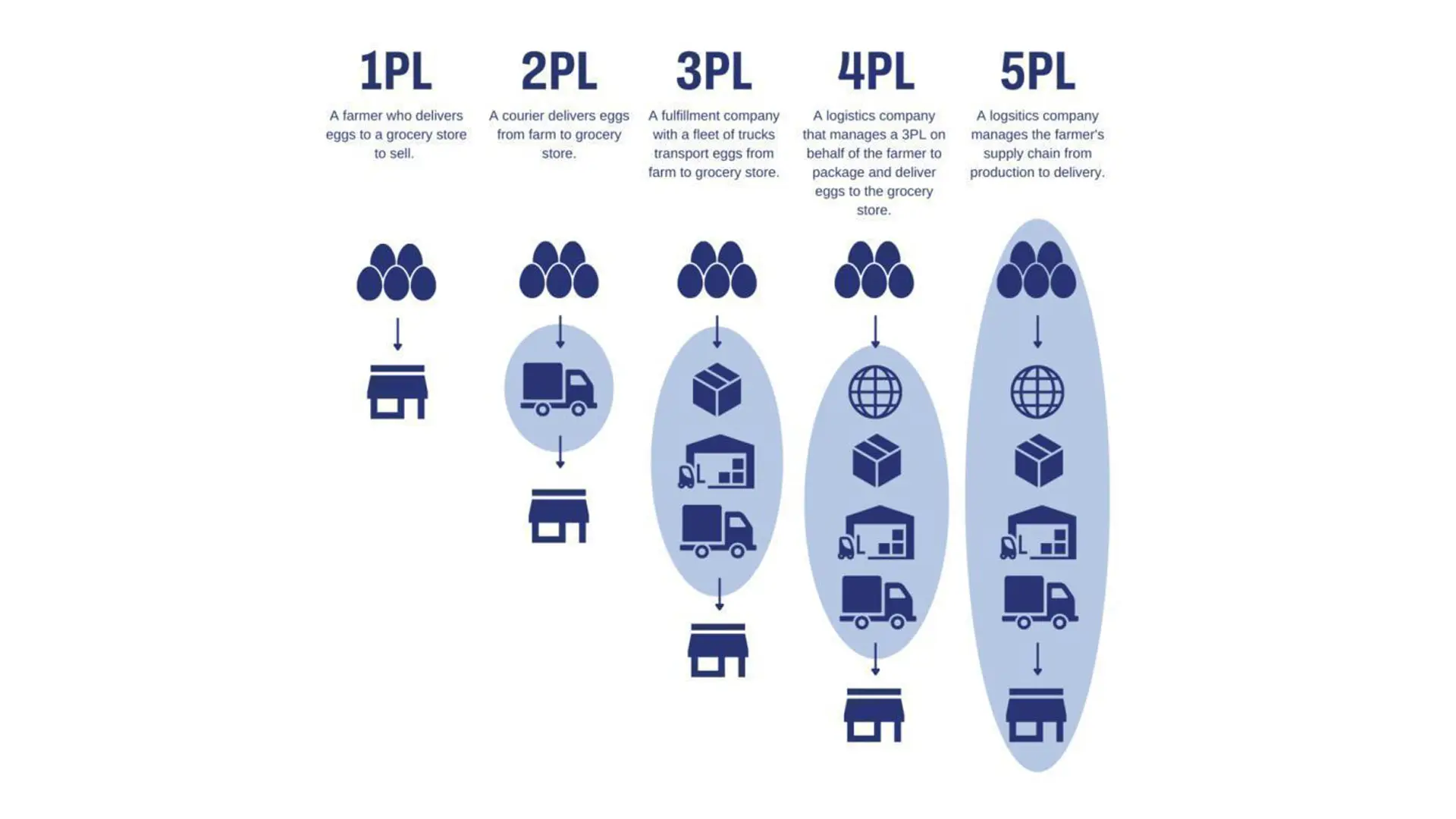In today’s fast-paced business world, supply chain and logistics management has become one of the most significant challenges for businesses. With advancing technology and increasingly complex customer needs, a new concept called Fifth-Party Logistics (5PL) has emerged, promising to revolutionize this field.
Remarkable Growth in Fourth-Party Logistics Market
According to the latest statistics, the Fourth-Party Logistics (4PL) market was valued at $57.9 billion in 2021 and is projected to reach $111.7 billion by 2031. This remarkable growth, with a compound annual growth rate (CAGR) of 6.7% from 2022 to 2031, demonstrates the increasing importance of advanced logistics services.
Evolution of Logistics Services
To better understand the position of Fifth-Party Logistics, it’s essential to understand the hierarchy of logistics services:
First-Party Logistics (1PL)
Companies that manage all their logistics and supply chain operations internally.
Second-Party Logistics (2PL)
Outsourcing transportation and warehousing services to external providers.
Third-Party Logistics (3PL)
Complete outsourcing of logistics processes, from warehousing to distribution.
Fourth-Party Logistics (4PL)
Managing the entire supply chain on behalf of a company, typically integrating multiple 3PL services and acting as a single point of contact.
The Fifth-Party Logistics Revolution
Fifth-Party Logistics (5PL) represents a concept beyond 4PL, introducing a new layer of strategic complexity. The key differences of 5PL include:
- Network Management: Instead of managing individual supply chains, 5PL manages networks of supply chains.
- Technology Integration: Utilizing advanced technologies and data analytics to optimize global logistics ecosystems.
- Comprehensive Services: Providing integrated solutions from procurement and production to final delivery.
Benefits of Using 5PL
- Cost Optimization: Operational costs are reduced through data analysis and artificial intelligence.
- Flexibility: Ability to quickly adapt to market changes and customer needs.
- Transparency: Complete visibility across all stages of supply chain and logistics.
- Higher Efficiency: Improved scheduling and service quality through advanced technologies.
The Future of Logistics with 5PL
As technology continues to advance, the role of 5PL in the future of logistics and supply chain management will become increasingly significant. This system helps companies not only survive unprecedented market changes but also thrive under these conditions.
Implications for E-Commerce
The emergence of 5PL is particularly significant for e-commerce businesses. As online retail continues to grow, the need for sophisticated logistics solutions becomes more critical. 5PL providers offer:
- Seamless integration with e-commerce platforms
- Real-time inventory management
- Advanced analytics for demand forecasting
- Optimized last-mile delivery solutions
- Enhanced customer experience through better delivery services
Strategic Advantages in Global Markets
5PL provides businesses with several strategic advantages in the global marketplace:
- Access to advanced technological infrastructure
- Improved international market penetration
- Better risk management
- Enhanced competitive positioning
- Sustainable logistics solutions
Conclusion
Fifth-Party Logistics represents the natural evolution of logistics services in the digital age. As global trade complexities and customer expectations increase, 5PL emerges as an efficient solution for modern supply chain management. Companies adopting this technology can gain significant competitive advantages in the market.
The projected growth of the 4PL market to $111.7 billion by 2031 indicates the strong potential for 5PL services, which build upon and enhance these existing capabilities. For businesses looking to stay competitive in an increasingly complex global marketplace, understanding and implementing 5PL solutions may become crucial for long-term success.


